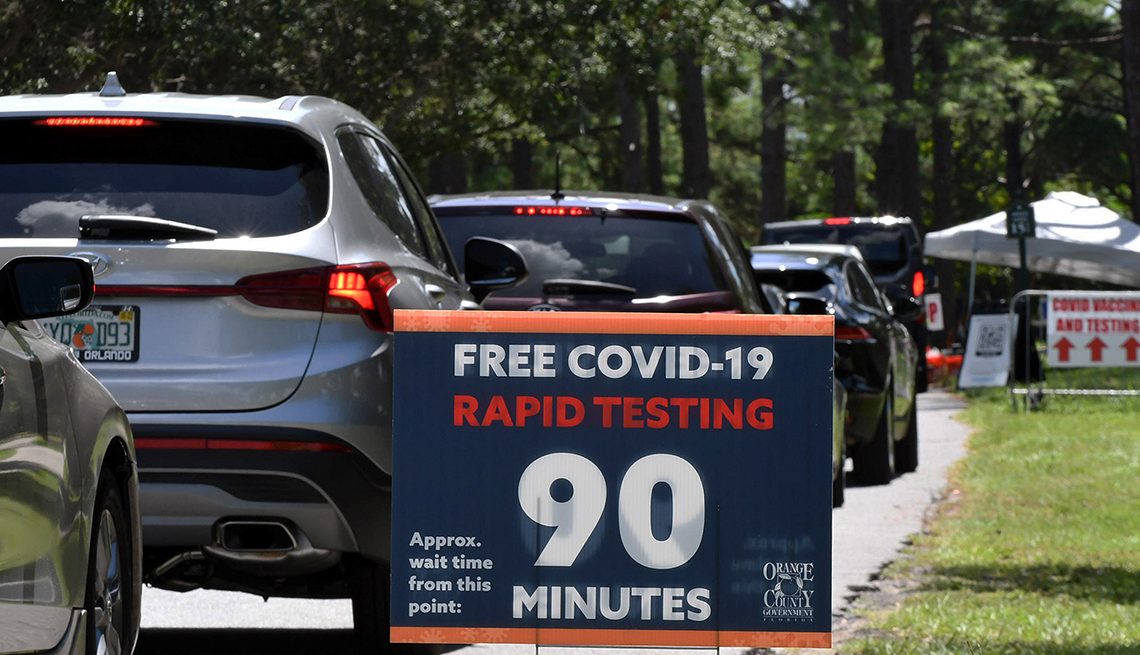
8 things to know about breakthrough covid infections
- Select a language for the TTS:
- UK English Female
- UK English Male
- US English Female
- US English Male
- Australian Female
- Australian Male
- Language selected: (auto detect) - EN
Play all audios:

A small study out of Israel published in the _New England Journal of Medicine_ found that among 39 healthcare workers with breakthrough infections, 19 percent experienced symptoms that
lasted more than six weeks. However, some experts are betting that the odds of developing long COVID after you're fully vaccinated are slim. “There's good reason to believe that
the more serious your infection is, the greater risk you are of having longer-term sequelae” — a word that refers to a condition resulting from an illness, Dowdy says. "And since the
vaccines are particularly good at preventing infections from getting out of hand when they do occur, there's strong reason to believe that these vaccines will also be very effective in
preventing these sorts of long-term sequelae,” he adds. 6. OLDER ADULTS ARE BEARING THE BURDEN OF SERIOUS BREAKTHROUGH CASES While less than 1 percent of breakthrough cases have resulted in
hospitalization or death, older adults make up the majority of those impacted by these severe infections. CDC data show that nearly three-fourths (74 percent) of people who have been
hospitalized or have died from COVID-19 after being fully vaccinated have been adults 65 and older. 7. TESTING IS CRITICAL AS COLD AND FLU SEASON LOOMS If you are fully vaccinated and start
to feel ill, getting a test to determine the cause is increasingly important — especially with colds on the rise and flu season right around the corner, Ohl says. If it's the flu,
there's antiviral medicine that can help relieve symptoms. (Currently, there is no easy-to-prescribe pill to treat COVID-19, but there could be soon.) If it's COVID-19,
“you're going to need to isolate and take precautions to not give it to other people, particularly vulnerable people,” Ohl says. "And if it's a cold, then you can just do what
you normally would do with a cold. So you kind of need to know what's causing these mild symptoms.” 8. VACCINES PROVIDE BEST PROTECTION The best way to protect yourself from getting
COVID-19 is to get vaccinated. And as more people roll up their sleeves to get the shots, we'll likely start to see fewer breakthrough infections. "Largely, the breakthrough
infections come from a vaccinated person being exposed to an unvaccinated person who has COVID,” Ohl says. “Think of it like we're going to have the virus do a mud run. ... The more
people that get vaccinated, the thicker and deeper the mud is, and the likelihood of the virus being transmitted between people gets less and less and less.” In the meantime, as new cases of
COVID-19 shoot up across the country, “there is a reason for us all to be a bit more cautious about things,” Dowdy says. "The number one message that people need to hear is that these
vaccines still work. They work against the delta variant, and it's the best mode of protection anyone has when it comes to getting this disease,” he adds. However, “if case counts
continue to go up, don't consider yourself 100 percent protected." _Editor’s Note: This story, originally published Aug. 3, has been updated to reflect new information._ _Rachel
Nania writes about health care and health policy for AARP. Previously she was a reporter and editor for WTOP Radio in Washington, D.C. A recipient of a Gracie Award and a regional Edward R.
Murrow Award, she also participated in a dementia fellowship with the National Press Foundation._
